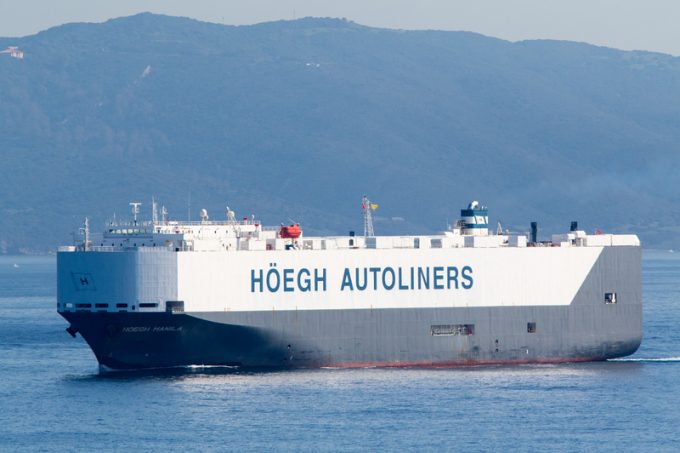Shipping lines are sub-letting tonnage to profit from firm charter market
Charter rates continue to defy the freight market, with HMM sub-letting a chartered vessel to ...

Maersk has sold its 10.2% stake in Höegh Autoliners, at a time when car-carriers are in enormous demand.
The Danish liner giant sold its 20 million shares in the Scandinavian car-carrier company for about NOK90 ($8.44) per share. Höegh’s share price briefly dipped this morning to ...

Comment on this article